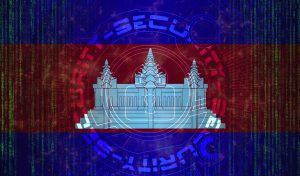The Cambodian government has postponed the introduction of a controversial National Internet Gateway (NIG) that would grant the government a choke hold over the country’s internet traffic. The gateway – a sort of “kill switch” for the Cambodian internet – was expected to come online today, but a spokesperson for the Ministry of Posts and Telecommunications told local media that its introduction had been postponed due to a combination of COVID-19 delays and concerns that it would disrupt online traffic.
“We have to prepare to install and order equipment in order to prepare and create the gateway. And we have to give licenses to any company that the government understands that has the ability to create the gateway,” spokesperson Meas Po said, according to the Voice of Democracy. “That’s why it can affect the traffic.”
Po denied the postponement of the NIG had anything to do with the severe criticism that has greeted the plan since the release of a sub-decree establishing the gateway on February 16 of last year. According to the sub-decree, the gateway will be controlled by a government-appointed regulator, which will support authorities with “measures to prevent and disconnect all network connections that affect national income, security, social order, morality, culture, traditions, and customs.”
In effect, the NIG would function as a giant on-off switch for the Cambodian internet. Under the gateway plan, all internet traffic, including from overseas, will be routed through a single portal managed by a government-appointed regulator. The decree also requires Internet service providers (ISPs) to make users complete online forms with their correct identities and states that failure to connect networks to the gateway – the deadline to do so was today – would be punished with the suspension of operating licenses and the freezing of bank accounts.
Unsurprisingly, the plan has attracted severe criticism from free speech advocates and human rights groups both international and domestic. In the argot of Cambodia’s ruling Cambodian People’s Party (CPP), “security, social order, morality, culture, traditions, and customs” are all code words for the types of political opposition and dissent that have been the subject of a concerted political crackdown over the past five years.
Last year, the Asia Centre said that the NIG plan reflected the “drastic regression” in internet freedom in Cambodia over the course of the past year. The rights organization Human Rights Watch similarly described it as a “a dangerous blow against internet freedom” and “the missing tool in the government’s toolbox for online repression” that would enter into effect just in time for this year’s commune elections.
The NIG plan appears to be the fruit of Cambodia’s close relationship with China, and bears a close family resemblance to that country’s “great firewall” of internet controls. It remains unclear whether Cambodia has the technical capacity to place such a tight seal on the flow of online information, but there is no doubt the CPP government views an unfettered internet as a political threat.
Ever since Facebook helped power significant opposition gains at national elections in July 2013, the CPP government has adopted a dual-track strategy of harnessing social media networks while extending its preexisting media controls, both formal and informal, into the online sphere.
While the government claims that the temporary stay on the introduction of the NIG has nothing to do with the criticism the plan has attracted, Cambodia’s Ministry of Foreign Affairs issued a separate statement yesterday expressing its disappointment over what it described as the “continued misinterpretations” of the law, and denied the gateway would abridge freedom of speech.
“On the contrary,” the statement read, “the government respects the individual’s right to privacy and freedom of expression and protects personal data, all of which are enshrined in laws, the Constitution, ratified international human rights treaties, the Civil Code, the Criminal Code, and the Law on Telecommunications.” Elsewhere, it promised that the government “will separately prepare a bill on personal data protection as soon as the draft law on cybersecurity is concluded.”
The problem is that what is written in Cambodian laws rarely if ever translates to reality, and is either ignored or implemented in ways beneficial to the CPP and its allies. The promise of a legal framework to safeguard personal data suggests that the postponement of the introduction of the National Internet Gateway is less a full surrender than as a temporary tactical retreat.

































